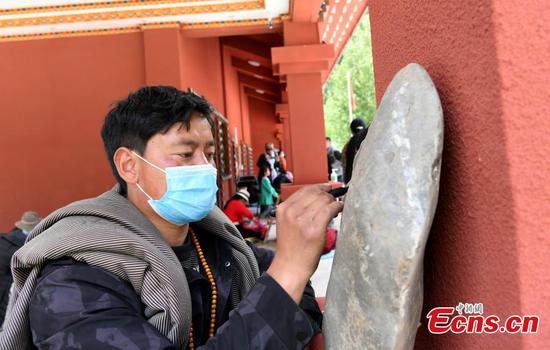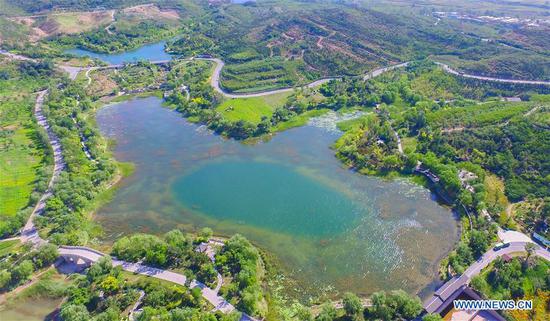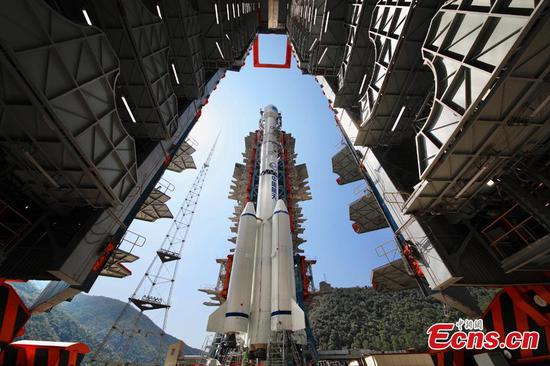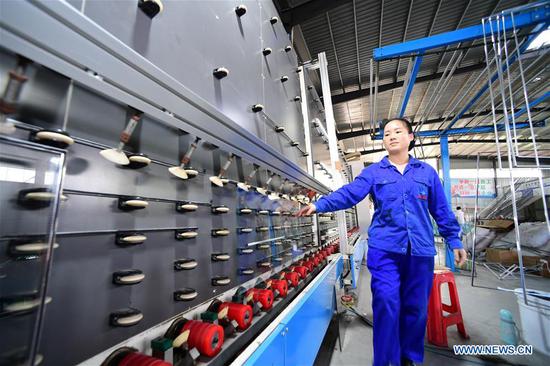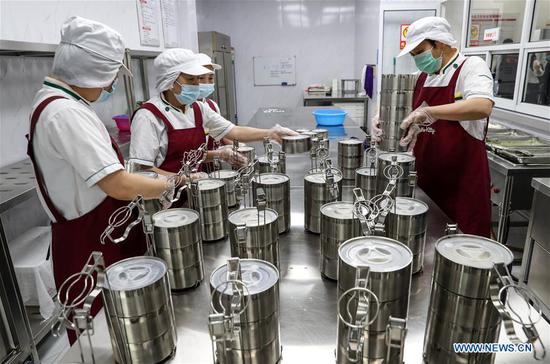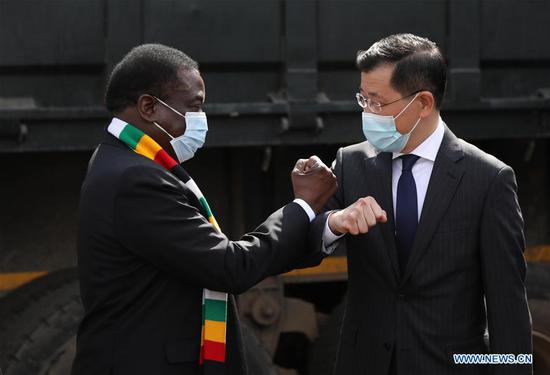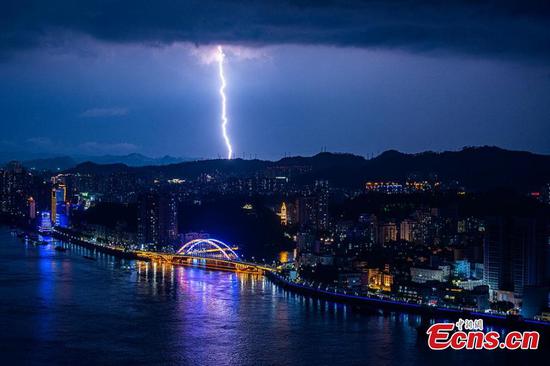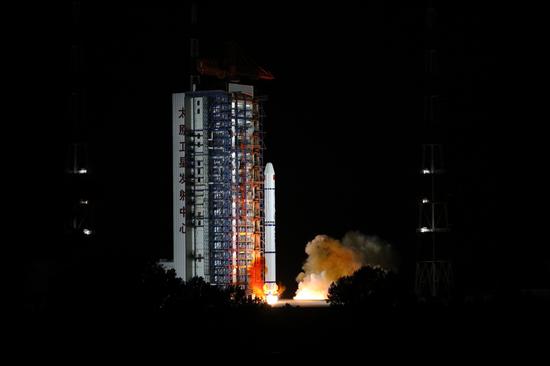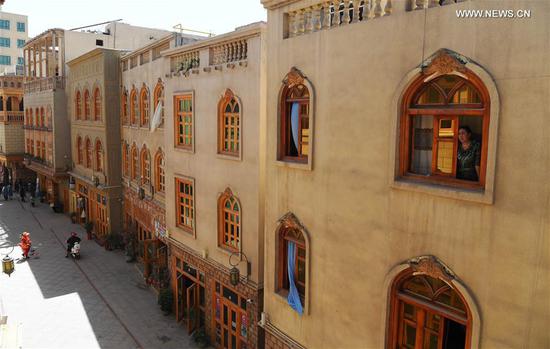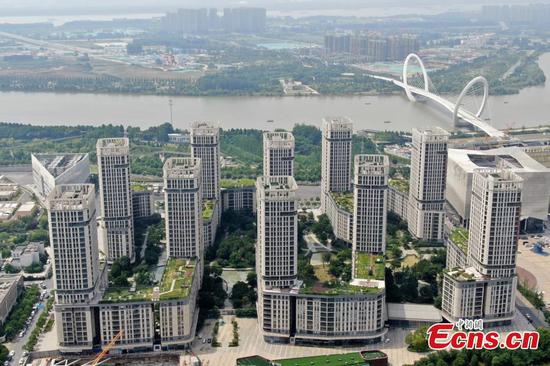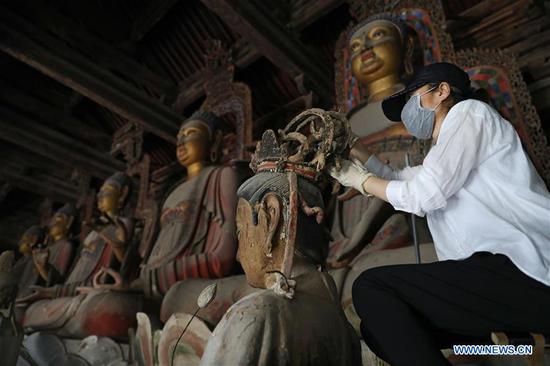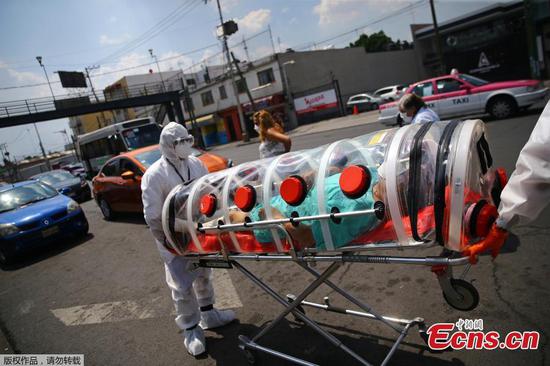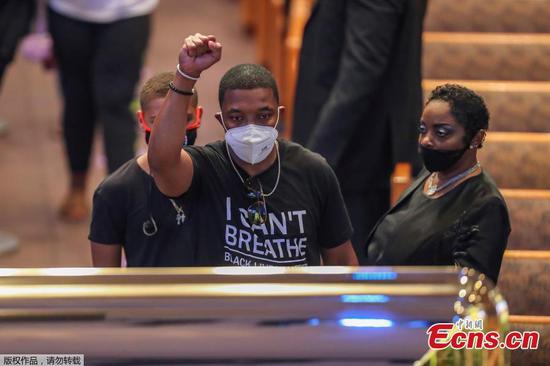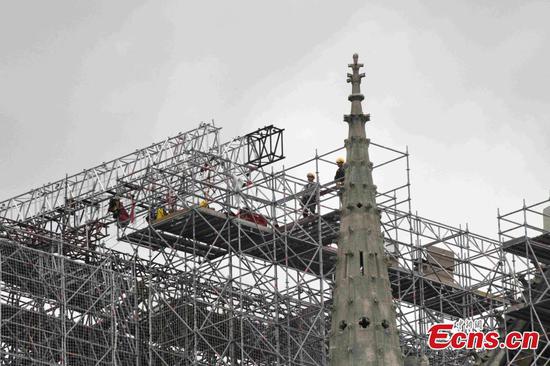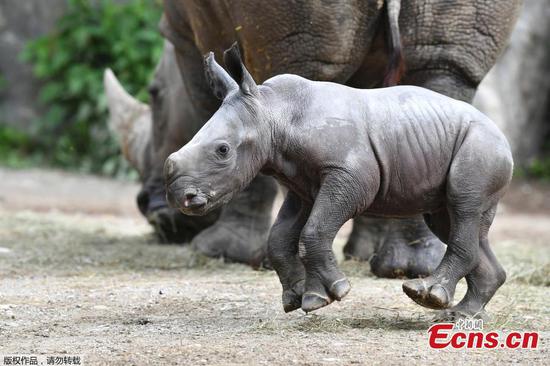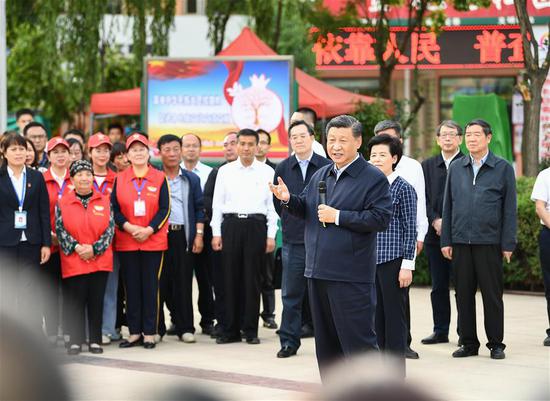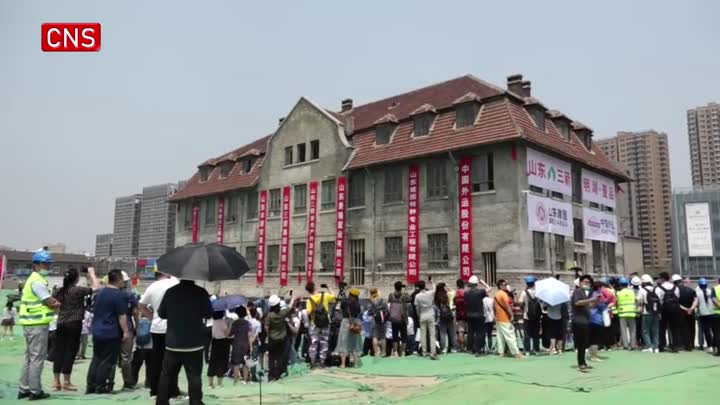
The Chinese national flag and the flag of the Hong Kong Special Administrative Region fly above the Golden Bauhinia Square in Hong Kong, China, Aug 5, 2019. (Photo/Xinhua)
From 1923 to 1956, the city of Tangier in Morocco was jointly administered by several foreign powers as an "international city". To some extent, China had this colonialist experience, too, through foreign concessions.
Needless to say, these concessions were acquired under duress through unequal treaties.
In the perception of some people, Hong Kong is some sort of international city or foreign concession. To them, it does not belong to China, even though China has undisputed sovereignty over it.
Therefore, they believe Hong Kong's future should be a matter of discussion among several countries, including the United States and the United Kingdom.
But the immutable fact is that Hong Kong is and will remain part of China.
When the British arrived in Hong Kong in 1841, they did not acquire the whole of Hong Kong in perpetuity. Hong Kong Island was ceded by the Qing Dynasty (1644-1911) to Britain in 1842 under the Treaty of Nanking; the Kowloon Peninsula was ceded to Britain in 1860 under the Convention of Peking; but the New Territories were leased to Britain for 99 years in 1898.
The continuation of British administration after 1997(not only in the New Territories) would not have been acceptable to China in any form, since Hong Kong was acquired by the UK through unequal treaties.
Following the 1984 Sino-British Joint Declaration, in 1997 Hong Kong returned to China under the "one country, two systems" principle.
In 2017, I did some research comparing, from a socioeconomic perspective, Hong Kong of 1997 with Hong Kong of 2017.
The data showed that Hong Kong was in better shape in 2017 than in 1997. While the people's life expectancy increased by eight years for men and women to 82 and 88 years, respectively, in the past 20 years, the public rental housing stock increased from 704,300 apartments in 1997 to more than 760,000 in 2017.
Almost every nation has laws to protect its national security. Yet some businessmen and investors have been worried over the national security law initiated by the National People's Congress, China's top legislature.
This period of uncertainty will not last long. They will welcome the new law before long because this new legislation will effectively tackle the social unrest that has plagued Hong Kong for the greater part of last year.
The Hang Seng Index fell 5.6 percent on May 22, the biggest single-day drop in five years. Though many Western media outlets predicted "the death of Hong Kong", this is false.
The new legislation will prove to be beneficial because it will bring back stability and security, the factors essential to bring back investors. In fact, the Hang Seng Index has regained its lost ground.
According to some investors, this will help Hong Kong return as a favored destination for investment, although in the short term, some investors and high net worth individuals might transfer their assets to Singapore or Western financial centers.
Hong Kong will weather the inevitable near-term turmoil, but it will fare much better in the longer term because both the central and Hong Kong governments have made unequivocal commitments to its future.
China has two options: to tolerate the anarchy or to adopt the national security law. Neither of the two is a good option in the short term.
Senior Chinese officials tasked with the Hong Kong portfolio have publicly asserted that 99.9 percent of Hong Kong people will not be affected by this new law, since it targets only separatist activities, subversion of State power, terrorism and foreign interference.
But we cannot prevent fearmongering being stirred up by the political opposition and their young extremist supporters, because our freedom of speech ensures they can have their say, even against the central and Hong Kong SAR governments.
We can take assurance from the fact that Hong Kong went through the Asian financial crisis, the SARS outbreak, the global financial crisis and the current pandemic without any significant outflow of capital.
Hong Kong people should not be overly concerned over short-term normal market fluctuations but should instead redouble their efforts to build a new and stronger Hong Kong that can not only withstand occasional uncertainties but also achieve greater successes.
The author has worked as a business analyst for a Hong Kong publicly listed company and holds a doctorate in Hong Kong real estate law and economics. The views do not necessarily reflect those of China Daily.











